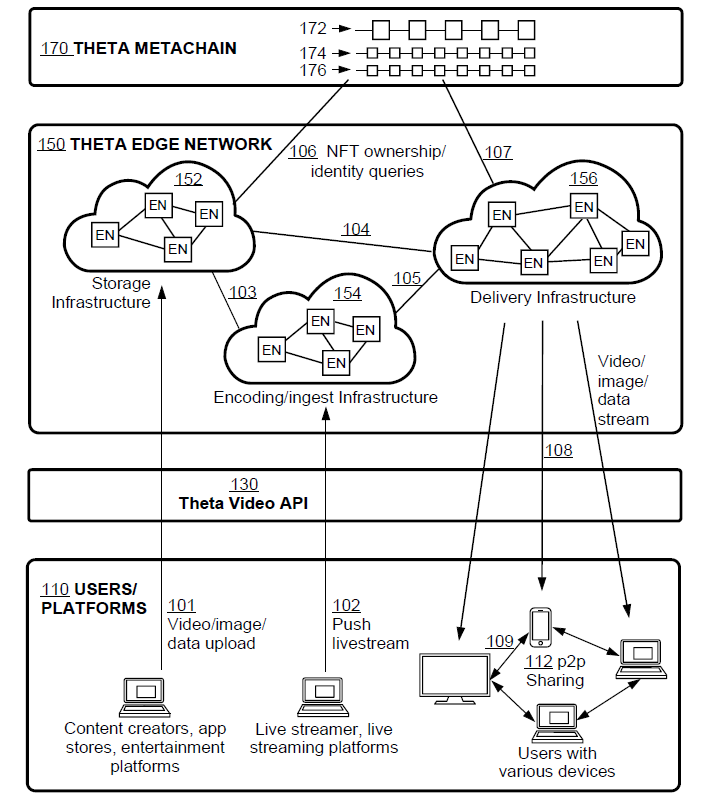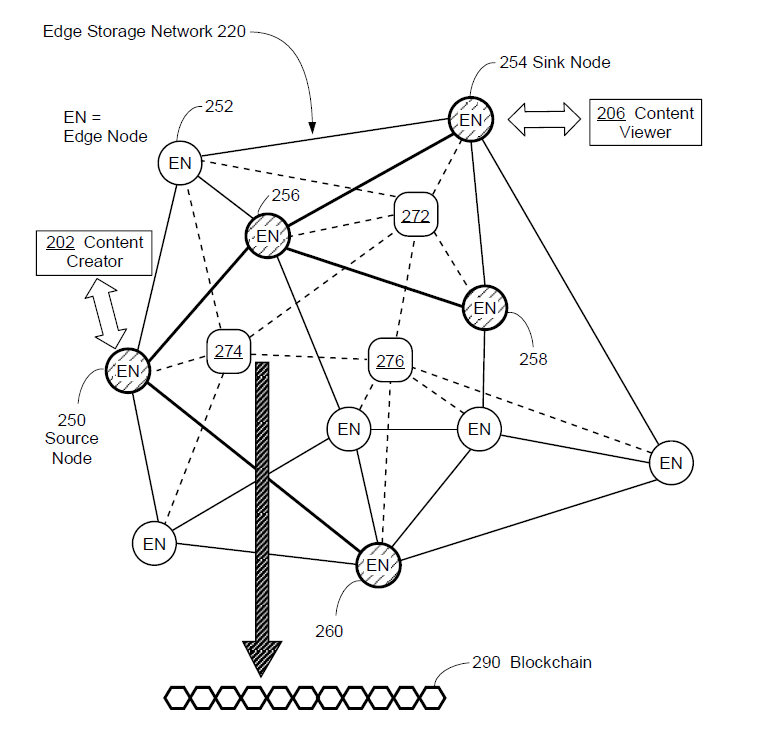Theta awarded US Patent 11,611,615 B1 for Decentralized Edge Storage Network With Flexible File…
7
0
Theta awarded US Patent 11,611,615 B1 for Decentralized Edge Storage Network With Flexible File Sharding

Theta Labs has now been awarded U.S. Patent 11,611,615 B1 for “Decentralized Edge Storage Network With Flexible File Sharding”, validating the innovative and novel approaches to a decentralized Edge Network built by the Theta team. With the addition of Flexible File Sharding, the Edge Network’s decentralized storage functionality becomes more robust and effective. The patent can be viewed here by accessing the USPTO website and entering “11611615” in the Quick Lookup section, or directly as a PDF here. In addition, an early Alpha version of the Edgestore gateway implementation is already live at https://thetaedgestore.com/. More technical documentation available at https://docs.thetatoken.org/docs/theta-edgestore-gateway-alpha.
This patent approval follows previous Theta patents issued for decentralized data streaming and delivery, ultra-high transaction throughput micropayments, methods and systems for peer node discovery, decentralized DRM via NFTs, and preventing denial-of-service attacks in decentralized edge networks, creating a portfolio of patents to further differentiate and protect the Theta technology and ecosystem.
The EdgeStore library implements a unique technique called “Flexible File Sharding” which can be viewed as an probabilistic extension of the Chord protocol for distributed hash tables (DHT). An EdgeStore node not only stores the permanent data shards assigned to it, but also caches the popular contents locally. Therefore, in addition to providing storage capability, the network also acts as a decentralized content delivery network (dCDN) for any type of files. We foresee that a wide array of decentralized applications can be built on top of the Theta EdgeStore, including but is not limited to the following:
- Permanent storage for the digital assets of NFTs (e.g. images, videos)
- Storage for training data sets, pre-trained models, and generative task outputs for AI algorithms, such as autonomous driving, protein folding, natural language processing, image/video generation etc.
- Data availability service for layer 2 scaling solutions such as rollups
- dCDN for video, music, game patches, software updates, etc.
- Storage backend for general web3 DApps, e.g. blogging sites, chat apps, decentralized app stores, decentralized Github repositories, etc.
- Storage for Metaverse digital assets, e.g. the 3D models of the characters and buildings in the virtual reality worlds.
While Theta Edge Nodes already support decentralized streaming and encoding/transcoding, with the addition of decentralized storage the Edge Node will offer a complete end-to-end decentralized service for video streaming, as well as any other type of file transfer or streaming. As we continue to release Edge Network updates through 2023, ultimately the production version can be used at scale by enterprises around the world.
To store a file in a decentralized network using Flexible File Sharding, a source node in the decentralized network first divides the file into a plurality of file portions. For each given file portion, a corresponding peer storage node is located in the decentralized network, where a distance between the corresponding peer storage node and the given file portion is below a given threshold, where the distance is computed based on an identifier of the corresponding peer storage node, and an identifier of the given file portion, and where the given threshold is associated with a storage capacity of the corresponding peer storage node. The source node then transmits each given file portion to the corresponding peer storage node, and generates a file identifier for the file, based on the identifiers of the plurality of file portions.


In short, the Theta Edge Network uses Flexible File Sharding and other patented techniques to achieve high scalability and high resource availability, and attains the following characteristics:
- Self-organizing, self-adaptive, self-evolving, minimal operational overhead, highly available, and robust
- Plug and play: a network node can join or leave at any time
- Supports delivery of various types of content (e.g., livestream, VoD, data blob, etc.) within a unified data retrieval framework.
- Highly secure, Digital Rights Management (DRM) compatible, General Data Protection Regulation (GDPR) compatible
Theta awarded US Patent 11,611,615 B1 for Decentralized Edge Storage Network With Flexible File… was originally published in Theta Network on Medium, where people are continuing the conversation by highlighting and responding to this story.
7
0
 Manage all your crypto, NFT and DeFi from one place
Manage all your crypto, NFT and DeFi from one placeSecurely connect the portfolio you’re using to start.




